Cláudio's Best Shot Pick: Klute (1971)
 Thursday, June 23, 2022 at 1:33AM
Thursday, June 23, 2022 at 1:33AM The next episode in our series, 'Hit Me With Your Best Shot,' arrives Thursday night. This week we're celebrating Alan J. Pakula's seminal Klute with multiple posts. You still have time to participate! In the meantime, here's Cláudio's entry:
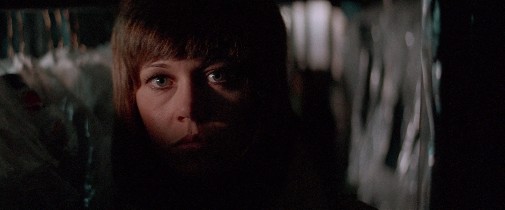
"I'm afraid of the dark, " says Bree Daniels, a New York sex worker trying to keep herself from becoming a serial killer's next victim. This confession happens relatively early in a film bearing the name of the taciturn Pennsylvania detective who comes to the Big Apple to investigate his friend's disappearance. He is the man to which she tells of this private fear, not necessarily a gesture of honesty but a weaponizing of her vulnerability. As ever, Bree wants control of the situation, and to bear herself naked is often the key to such dominance. Nakedness, of course, can come from truth rather than bared flesh. Watching Klute, one gets the sense that Bree is truly afraid of the dark, even though that very darkness is the poisonous womb within which she exists at all time, like an unborn babe striving for the light of birth while keeping itself smothered in the comfort of shadow…
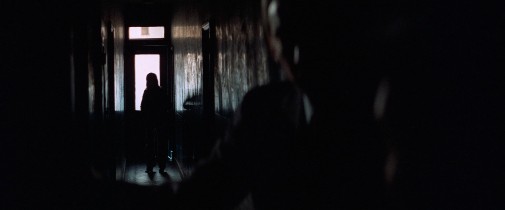
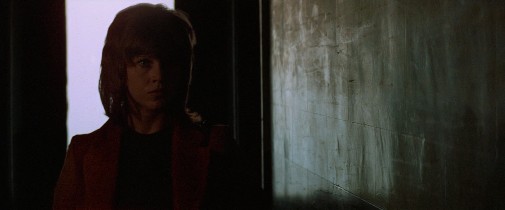
Klute is one of the most influential films of the 1970s, following Midnight Cowboy in establishing an aesthetic and narrative tenor of urban nihilism subsumed in profound disquiet, the sense that everything is rotten and that one's being watched at all times. It's a landmark in the career of Alan J. Pakula, only his second feature and the first installment in the man's unofficial Paranoia Trilogy, soon to be followed by The Parallax View and All The President's Men. Though it shares many characteristics with the director's debut, The Sterile Cuckoo – both are realistic character studies of broken women trying to come to terms with their identity, trying to unbreak themselves – Klute is a massive step forward.
That's mainly because it was the first time Pakula worked with cinematographer Gordon Willis, the Prince of Shadows, whose underlit style would define the New Hollywood Cinema of incoming years. Together with Jane Fonda, they shape Klute to its leading lady's inner life, going as far as making the city an extension of her fears. Here, New York is seen as a subterranean environment, a closed-in, locked-in world where even the outside, the place in the sun, is dominated by shadows. The city is Bree's hell, her psychology expanded outward from her interior and materialized as the set of day-to-day life. That's the paradox at the center of Klute's visual strategies.
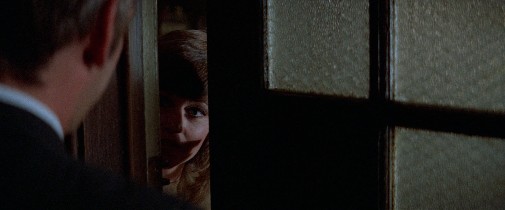
Though Bree wants to flee from the dark, it surrounds her, a security blanket that twists itself too tightly around the body, a sentient anaconda-like predator. As a result, she's drawn to what most terrifies her. Fittingly, the film's most indelible images find the protagonist existing in streaks of inky black across the celluloid frame, often straddling the line between autonomy and victimhood. Regard her first interactions with Klute, his imposing figure blocks the light, smothering her, even as Bree uses the shadows to keep herself armored and mysterious. A nocturnal playacting cum seduction sees the sex worker fully embody the realities of a performing artist, an actress in slinky sequins playing for an audience of one.
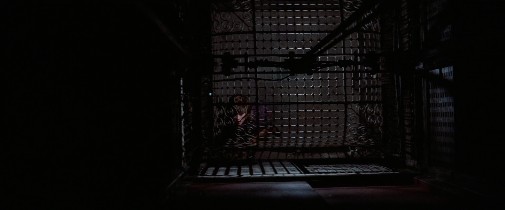
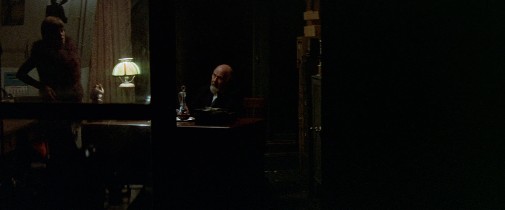
That scene further showcases another one of Pakula, Willis, and Fonda's other tools when building the sinister world of Klute – long takes. Often shooting entire scenes in one single marathon-length shot, the filmmakers distend time as a tool of performance versatility. In other words, one feels trapped by these prolonged contemplations, sometimes at Bree's mercy, often by her side as both she and us, her audience, grow terrified by what's happening. This brings me to the matter of Klute's best shot. So great is this movie that there were plenty of possible choices, unforgettable visions of moral turpitude, and shadowy entrapments where Fonda emerges as the camera's most valuable subject.
That being said, my pick is an example of the film's best elements coming into play simultaneously. There's the long take, Willis' shadows, the psychology translated in film form, Jane Fonda's miraculous Oscar-winning performance, and Pakula's bending of genre tropes to the shape of a character study. Here it is:
Near Klute's end, long after the camera has revealed the killer's identity to us, Bree is confronted by her assailant. Rather than a figure of passionate chaos, a man overtaken by his wild lusts, the monster is perfectly banal and cold-blooded. Somehow, that's scarier than any irascible murderer. Preparing to exact his last bit of carnage, the villain plays Bree one of his beloved tapes, a recording of another woman's violent death at his hands. Rather than flashing back to that poor soul's lurid end or intercut from prey to predator, Pakula leaves the camera on Fonda for large swaths of time. This particular shot lasts for over two minutes as we're forced to experience the tape with Bree, witnessing her mounting terror as Fonda quietly breaks down.
Tears and snot are faintly visible, traces of light that cut through the dark that so frightens Bree. It's an example of anguish crystalized in celluloid, a pit of misery so profound it makes the screen feel like a black hole pulling us towards its gargantuan unknown, a titan's wide-open maw ready to devour us into its blackened bowls. The comfort of the dark has evanesced, and the paradox is broken. The comfort blanket is no more. Now there's only fear left. Are you afraid of the dark? When watching this scene, how can you not be?
Don't forget to post your #bestshot choices from Klute so that Nathaniel can include them in tomorrow's Best Shot post. You can find the film on HBO Max.



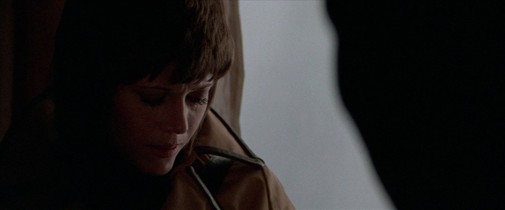
Reader Comments (5)
Jane Fonda recently spoke about filming this scene, “There’s a scene in the movie where I am taken to morgue to see if I can identify any of the women who have been murdered. And so, in preparation for that I asked I asked to go to a real morgue, and I was shown the files, and I threw up.”
The actress continued, “Weeks later we were shooting the last scene and the john I’m with starts to play a tape, and I suddenly realize that this is the killer. And what happened was, as I listened, I saw the faces of those women in the morgue. All those shots of women who were beaten. Yellow, blue, bloody, swollen faces. And I started to cry and the crying wasn’t for me, it was for all the women who die at the hands of enraged men.”
I know people claim this a lot but this is one of the best performances to win the Oscar.
Very good choices as usual. If we keep doing this next year, I think Claudio's post would work better after we -your beloved readers- post our own picks.
I also agree with Peggy Sue! It's tempting to read Claudio's picks but I usually avoid them until after I make my picks (which are usually on the day). This time around I already had one and so was able to read this great write-up. Shadows and fear! Fond is SO EXCELLENT here.
I remember this performance by Jane Fonda for how tense it made me feel throughout the entire film. There is no real break from the mounting tension, and the sick feeling that Bree will not get out of New York alive. Astonishing how even the still images capture the pervasive feeling of claustrophobia.
Fonda set the bar very high with this performance, it was undeniable. A great Oscar win.